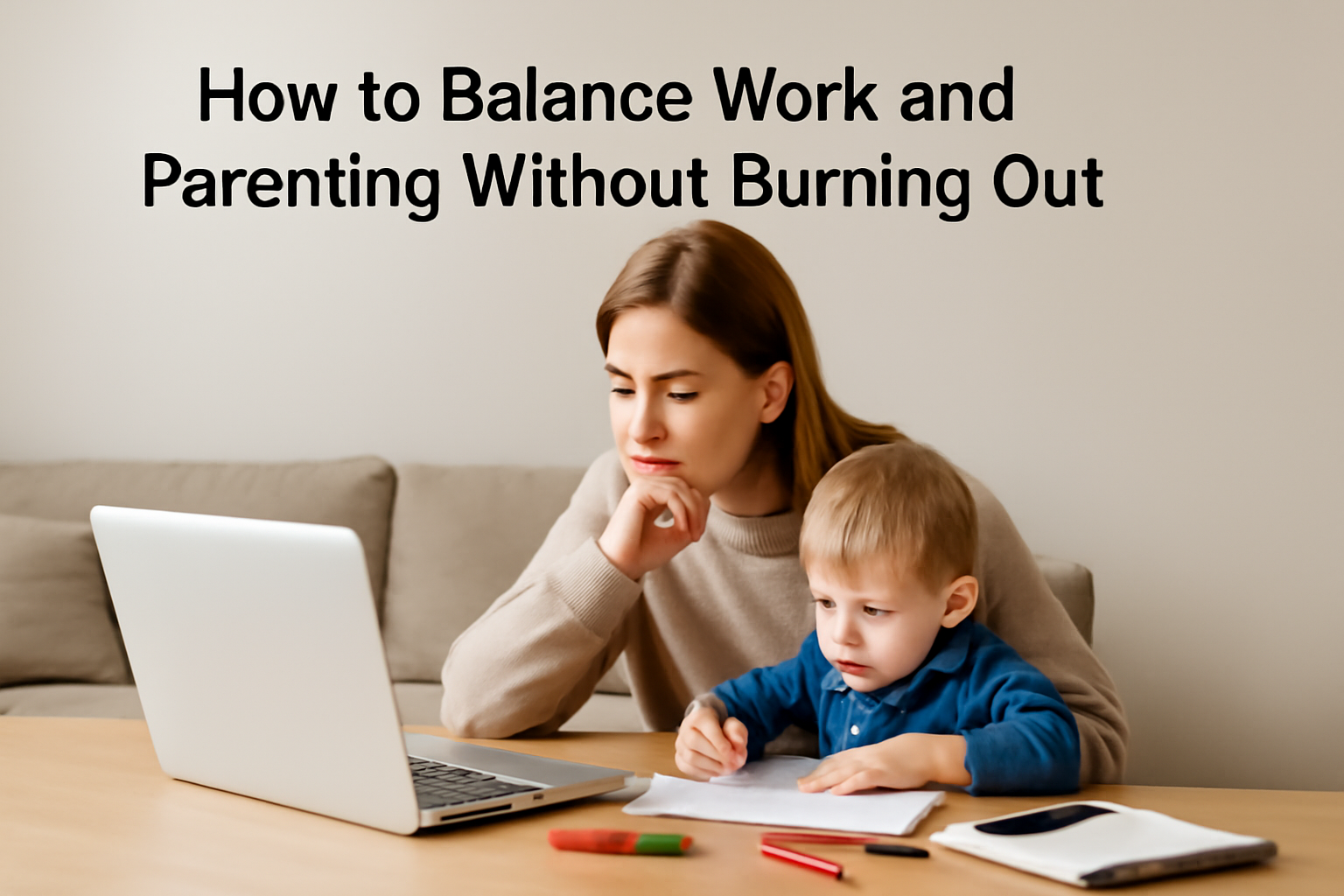Modern parents often feel like they’re living two full-time lives—juggling deadlines, meetings, and emails with bedtime routines, tantrums, and endless piles of laundry. Balancing work and parenting is one of the greatest challenges families face today.
The truth is: you can’t do it all, all the time. But you can create a life where work and parenting coexist in a way that’s sustainable, healthy, and fulfilling.
Here’s how to navigate that balance without losing yourself in the process.
Accept That “Balance” Doesn’t Mean Perfection
Forget the idea of perfect balance where everything gets equal attention at all times. Real balance is dynamic. Some days, work will take priority. Other days, your child will need you more. That’s okay.
Think of balance as a rhythm, not a scale. The goal is not perfection—it’s sustainability.
Set Clear Boundaries Between Work and Home
If you work from home, the lines between work and parenting can blur quickly. Even in traditional jobs, smartphones and emails make it easy for work to creep into family time.
Protect your energy by setting clear boundaries:
- Create work hours and stick to them
- Turn off notifications after hours
- Have a dedicated workspace, even if it’s small
- Communicate boundaries to your employer and your family
This helps prevent burnout and protects your mental health.
Prioritize Ruthlessly
You can’t do everything. Start each day or week by identifying your top 3 priorities—for work and for home. Focus on what truly matters and let go of the rest.
Ask yourself:
- What will move me forward professionally?
- What will strengthen my relationship with my child?
- What can I delegate or delay?
Simplifying your to-do list makes everything more manageable.
Build a Routine That Works for Your Family
Routines bring predictability and reduce decision fatigue. Create a daily structure that includes:
- Focused work time
- Scheduled breaks
- Dedicated family time
- Rest and self-care time
Involve your child in the routine too:
- Morning rituals (breakfast, getting dressed together)
- After-school time (snack, play, homework)
- Bedtime routine (bath, stories, cuddles)
When your family knows what to expect, transitions are smoother and everyone feels more secure.
Use Childcare Without Guilt
Whether it’s daycare, a nanny, or a trusted relative, childcare is not a weakness—it’s a resource. Quality childcare allows you to focus on work knowing your child is safe and engaged.
Let go of guilt. You’re not choosing work over your child—you’re providing for them and being a great role model.
Practice Presence Over Perfection
You don’t need to spend every hour with your child to be a great parent. What matters more is how present you are when you’re together.
Even short moments of undivided attention—reading a book, playing a quick game, or sharing a snack—build connection and trust.
Put your phone down. Make eye contact. Laugh together. These moments count more than you think.
Communicate with Your Partner or Co-Parent
If you share parenting duties, open and honest communication is essential. Discuss:
- Work schedules and flexibility
- Division of household responsibilities
- Emotional support needs
- Time for rest and connection as a couple
Check in regularly to adjust and support each other as life changes.
Ask for Help—and Accept It
You don’t have to do this alone. Whether it’s hiring help, asking family to babysit, or trading tasks with a friend, accepting support is a sign of strength—not failure.
Also explore workplace supports:
- Flexible scheduling
- Remote work options
- Family leave or mental health benefits
Many parents struggle silently. You don’t need to.
Include Your Child in Your Work Life—Sometimes
Depending on your job, there may be opportunities to involve your child in age-appropriate ways:
- Let them “work” next to you with crayons and paper
- Talk about your job and what you do
- Let them help organize your desk or pack your bag
This teaches your child about responsibility and shows them how you contribute to the world.
Take Care of Yourself (Seriously)
You can’t pour from an empty cup. Make time—however small—for:
- Sleep
- Healthy meals
- Exercise or movement
- Quiet time or meditation
- Connecting with friends or a support group
You deserve care just as much as your child does.
Let Go of Comparison
Other families may look like they have it all together—but you don’t see their full story. Social media highlights don’t reflect the messy, beautiful reality of parenting.
Focus on your own values, goals, and family rhythm. You’re doing better than you think.
Teach Your Child Through Your Actions
Your child learns how to manage stress, balance responsibilities, and treat themselves by watching you. When they see you working hard, setting boundaries, resting, and loving them fiercely—they’re learning skills that will serve them for life.
You are modeling resilience, balance, and self-respect.
Final Thought: You’re Doing Enough
You might not feel like it every day—but you’re doing enough. You’re showing up, doing your best, and loving your child while balancing countless responsibilities.
There will be messy days. Late nights. Forgotten appointments. That’s okay.
Breathe. Reset. Try again tomorrow. You are exactly the parent your child needs.
